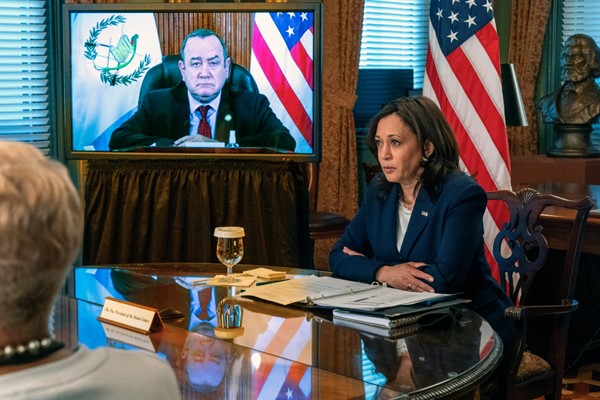President Joe Biden’s administration is ramping up its diplomatic efforts to address what it calls the “root causes” of Central America’s migration crisis. Early next month, U.S. Vice President Kamala Harris will travel to Guatemala—part of a two-country trip that also includes a stop in Mexico—in hopes of making progress on efforts to address the poverty, violence and corruption that force Central Americans to flee the region. But while the administration’s approach to Central America has some promising elements overall, it faces stiff headwinds in the region.
Last week, Congress released a list of 16 current and former Central American politicians that the State Department accuses of corruption or involvement in drug trafficking. The list—which includes current Honduran and Guatemalan lawmakers, as well as a top aid to Salvadoran President Nayib Bukele—underscores how deeply entrenched corruption is in the Northern Triangle countries of Guatemala, El Salvador and Honduras. Political elites in those nations have shown little appetite for going along with Biden’s anti-graft efforts.
When Harris travels to Guatemala next month, it will be “more by default than design,” Eric Olsen, director of policy at the Seattle International Foundation, told Politico. Out of the three Northern Triangle countries, the Biden administration sees Guatemala as the most willing to talk about the factors pushing people to leave the region. El Salvador and Honduras, on the other hand, are viewed by the administration as all but lost causes given recent developments there.

